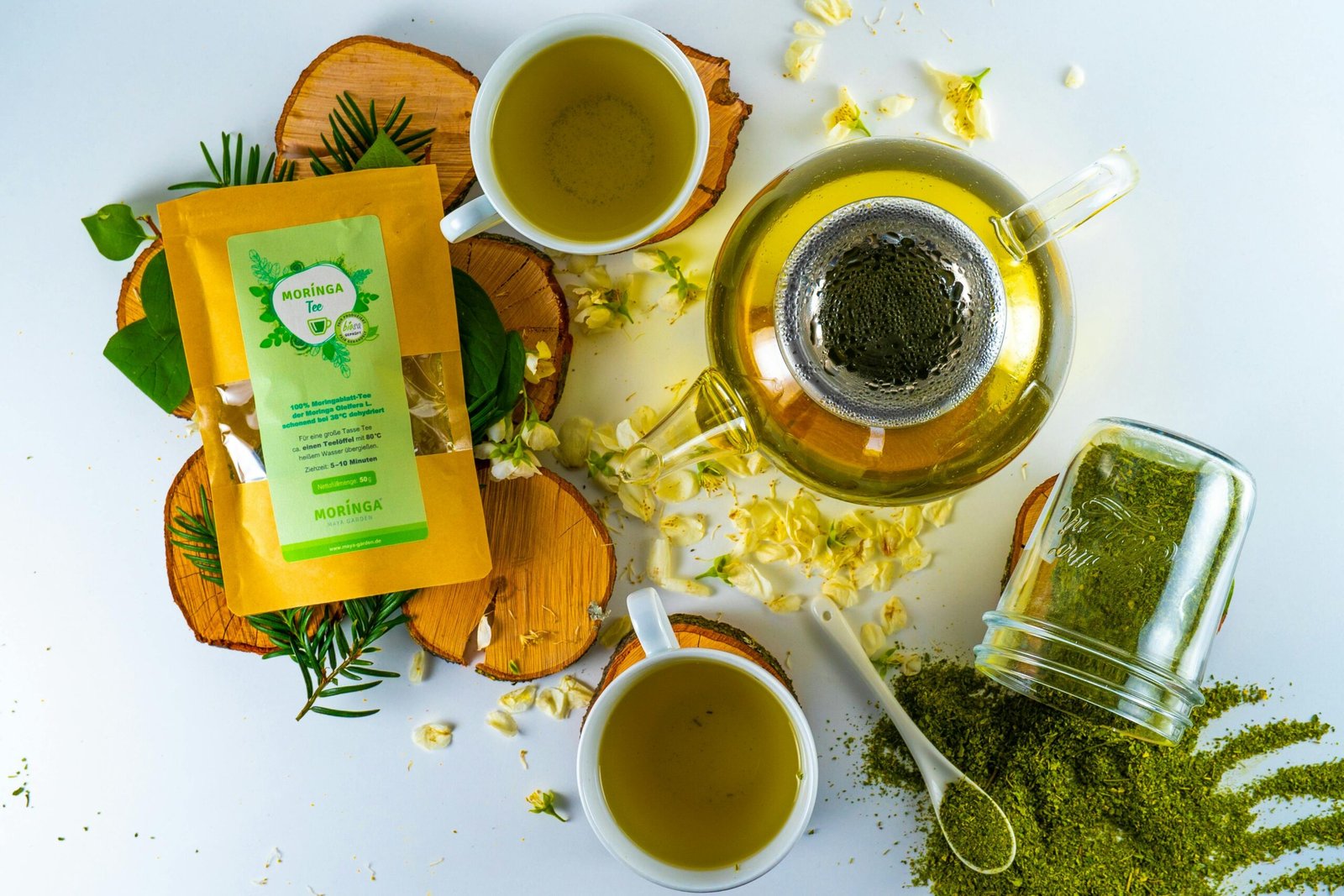
Have you ever wondered how a single plant could potentially transform your health and wellbeing?

What is Moringa?
Moringa, often referred to as the “drumstick tree” or “miracle tree,” is native to North India and grows in many tropical and subtropical regions. It’s packed with nutrients and has been used in traditional medicine for centuries. You might be surprised to learn just how many nutrients and health benefits this humble tree has to offer.
Nutritional Profile of Moringa
Moringa leaves are a powerhouse of nutrients. Let’s break down this extraordinary plant’s composition so you can see for yourself:
| Nutritional Component | Amount per 100g |
|---|---|
| Calories | 64 |
| Protein | 9.4g |
| Carbohydrates | 8.3g |
| Dietary Fiber | 2g |
| Fat | 1.4g |
| Vitamin A | 18,000 IU |
| Vitamin C | 220 mg |
| Calcium | 200 mg |
| Potassium | 337 mg |
| Iron | 4mg |
Moringa leaves can provide a significant amount of your daily nutrient needs, making it a fantastic addition to your daily diet.
Health Benefits of Taking Moringa Daily
So, why should you consider incorporating moringa into your routine? The potential benefits are plenty! Here’s a closer look.
1. Rich in Antioxidants
Moringa contains several powerful antioxidants, including quercetin, chlorogenic acid, and beta-carotene. Antioxidants are crucial for neutralizing harmful free radicals in your body. By taking moringa daily, you can help combat oxidative stress, which can lead to various chronic diseases.
2. Supports Immune Function
Given the challenging times we live in, maintaining a robust immune system is essential. Moringa is rich in vitamins A, C, and E, all of which contribute to better immune health. These vitamins play a critical role in the functioning of immune cells, helping to ensure your body can respond effectively when needed.
3. Anti-Inflammatory Properties
Chronic inflammation is at the root of many health issues, including heart disease and arthritis. Moringa contains compounds that can reduce inflammation in the body, providing relief if you’re dealing with inflammatory ailments. Some studies suggest that regular intake of moringa may decrease the production of inflammatory markers.
4. Supports Healthy Blood Sugar Levels
If you’re concerned about managing your blood sugar, moringa might be your new best friend. Research has shown that moringa can help lower blood sugar levels, making it a potential supplement for those with diabetes or those wanting to maintain stable blood sugar levels. Just remember, it should be used in conjunction with a balanced diet and lifestyle.
5. Regulates Cholesterol Levels
High cholesterol is a significant risk factor for heart disease. Studies have indicated that moringa can help lower cholesterol levels. By including moringa in your daily routine, you might contribute to a healthier heart and improved overall cardiovascular health.
6. Enhances Brain Health
Moringa may have neuroprotective properties, thanks to antioxidants and other bioactive compounds. These components can help protect against neurodegenerative diseases and improve cognitive function. If you’re looking to boost your memory and overall brain health, moringa could be a wise addition.
How to Incorporate Moringa into Your Daily Routine
Now that you’re aware of the potential benefits, you might be thinking about how to add moringa to your day. Luckily, there are several straightforward ways to integrate it into your routine.
Moringa Powder
One of the easiest ways to consume moringa is through powdered form. You can sprinkle moringa powder over your meals, mix it into smoothies, or incorporate it into your morning oats. The versatility of moringa powder makes it a popular choice!
Moringa Capsules
If you prefer quick and easy options, moringa capsules are available. This option allows you to reap the benefits without the hassle of preparation. Just remember to follow the recommended dosage on the packaging.
Fresh Moringa Leaves
If you’re feeling adventurous, you can source fresh moringa leaves. They can be eaten raw in salads or cooked as you would spinach. The fresh leaves have a slightly peppery taste that can enhance various dishes.
Potential Side Effects of Moringa
While moringa has many benefits, it’s essential to be aware that it might not be suitable for everyone. Some potential side effects to keep in mind include:
- Digestive Upset: Some individuals might experience gastrointestinal issues, such as bloating or diarrhea, particularly with high doses.
- Lowered Blood Sugar: If you’re on medication for diabetes, moringa may enhance the effects of your medication, potentially causing blood sugar levels to drop too low.
- Interactions with Medications: Moringa may interfere with certain medications, particularly those processed by the liver.
Always consult with your healthcare provider before incorporating moringa into your daily routine, especially if you have underlying health issues or take medications.

Recipes to Try with Moringa
Feeling inspired to add moringa to your meals? Here are a couple of simple recipes you can try at home.
Moringa Smoothie
Ingredients
- 1 banana
- 1 cup of spinach
- 1 tablespoon of moringa powder
- 1 cup of almond milk (or any milk of your choice)
- 1 tablespoon of honey (optional)
Instructions
- Combine all ingredients in a blender.
- Blend until smooth.
- Pour into a glass and enjoy!
Moringa Soup
Ingredients
- 1 tablespoon of olive oil
- 1 onion, chopped
- 2 cloves garlic, minced
- 4 cups vegetable broth
- 2 cups chopped vegetables (carrots, peas, etc.)
- 2 cups fresh moringa leaves or 2 tablespoons moringa powder
- Salt and pepper to taste
Instructions
- Heat olive oil in a pot over medium heat. Add chopped onion and garlic, and sauté until translucent.
- Add chopped vegetables and vegetable broth. Bring to a boil, then reduce heat and simmer for 15 minutes.
- Stir in moringa leaves or powder and season with salt and pepper. Cook for another 5 minutes.
- Serve hot and enjoy the nourishing benefits!
Frequently Asked Questions (FAQs)
Is Moringa safe for everyone?
Moringa is generally safe for most people when consumed in moderate amounts. However, pregnant individuals should consult a healthcare provider, as it might have hormonal effects.
Can Moringa replace nutritional supplements?
While moringa is nutrient-dense, it should not replace a balanced diet or specific nutritional supplements unless advised by a healthcare professional.
How long does it take to see benefits from Moringa?
The time frame for experiencing the benefits of moringa can vary based on your overall diet, lifestyle, and the dosage you’re taking. Some individuals notice improvements within a few weeks, while others may take longer.

Conclusion
Taking moringa daily offers a multitude of health benefits that can enhance your overall wellbeing. With its impressive nutritional profile, potential for improved immune function, and support for metabolic health, it’s a fantastic natural supplement to consider.
By incorporating it into your daily routine—whether through powder, fresh leaves, or capsules—you can harness the plant’s power to support various aspects of your health. Just remember to pay attention to your body’s reactions and consult with a healthcare professional to ensure it’s right for you.
Why not give moringa a try? Your health journey might just take an exciting new turn!